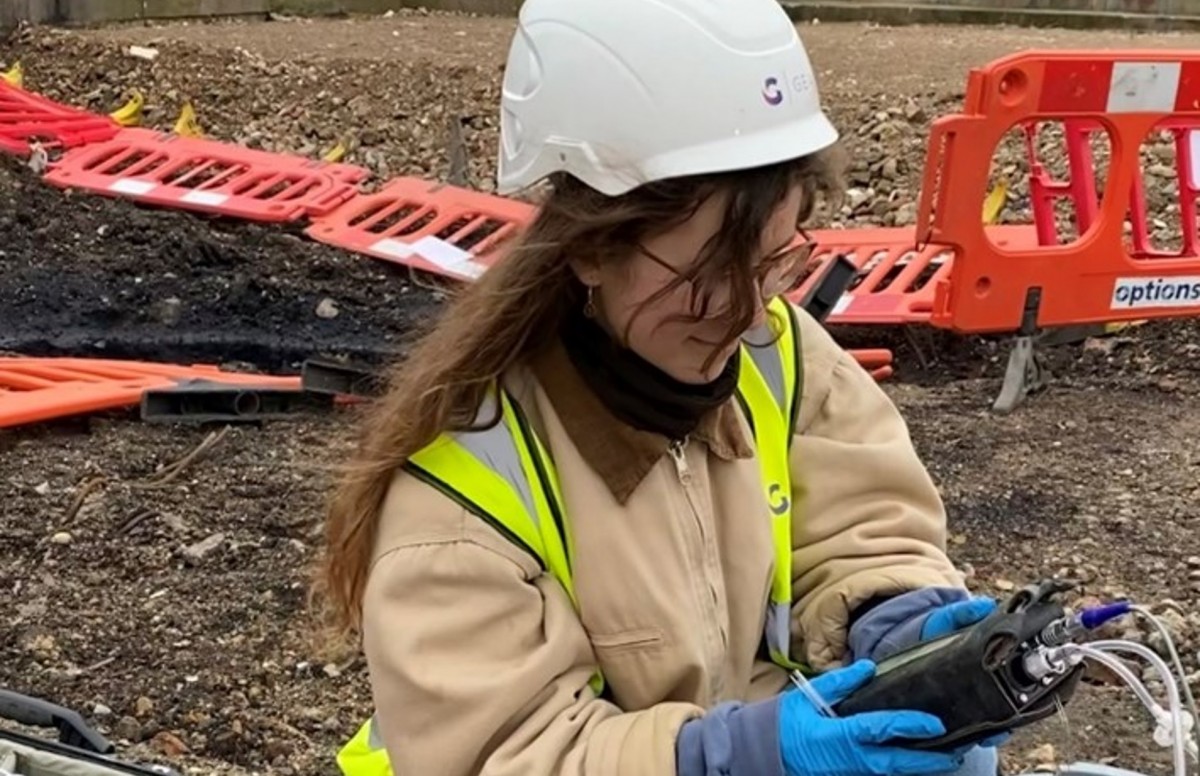Little Known Questions About Geotheta.
Little Known Questions About Geotheta.
Blog Article
What Does Geotheta Do?
Table of ContentsThe Geotheta Ideas5 Easy Facts About Geotheta DescribedGeotheta - QuestionsGeotheta Things To Know Before You BuyNot known Incorrect Statements About Geotheta

They perform website investigations, gather examples, perform lab examinations, and assess information to examine the viability of the ground for construction jobs - Geo Tech Engineering. Based upon their searchings for, geotechnical engineers offer referrals for foundation design, slope stability, retaining structures, and mitigation of geotechnical threats. They collaborate with various other professionals, such as designers, structural engineers, and construction groups, to make sure that geotechnical factors to consider are incorporated right into the general job layout and application
By assessing the actions and homes of dirt and rock, they can determine prospective geotechnical dangers such as landslides, dirt settlement, or slope instability. Their competence aids protect against failings or mishaps that might endanger lives and residential or commercial property. Below are some detailed obligations and obligations of a geotechnical designer: Site Investigation: Geotechnical engineers conduct website investigations to collect information on subsurface problems.
They translate the data to recognize the properties and behavior of the soil and rock, including their stamina, leaks in the structure, compaction features, and groundwater conditions. Geotechnical Analysis and Layout: Geotechnical designers assess the information collected during site examinations to analyze the stability and viability of the website for construction projects. They carry out geotechnical computations and modeling to assess variables such as birthing ability, negotiation, slope security, side planet pressures, and groundwater circulation.
The 30-Second Trick For Geotheta
Foundation Design: Geotechnical engineers play a vital function in designing structures that can securely support the intended framework. They examine the soil conditions and tons needs to determine the proper foundation type, such as superficial structures (e.g., footings), deep foundations (e.g (https://geotheta.start.page)., stacks), or specialized methods like soil renovation. They consider aspects such as settlement limits, bearing ability, and soil-structure interaction to create optimal structure styles
They assess building and construction plans, monitor site tasks, and carry out area evaluations to verify that the layout referrals are adhered to. If unforeseen geotechnical problems occur, they evaluate the situation and give suggestions for removal or modifications to the design. Risk Assessment and Mitigation: Geotechnical engineers examine geotechnical risks and dangers related to the task site, such as landslides, liquefaction, or dirt erosion.

Collaboration and Communication: Geotechnical designers work carefully with various other specialists associated with a task, such as engineers, architectural engineers, and building teams. Reliable communication and partnership are vital to integrate geotechnical factors to consider into the total job layout and building and construction procedure. Geotechnical engineers offer technological knowledge, solution queries, and make certain that geotechnical demands are fulfilled.
Not known Factual Statements About Geotheta
Right here are some sorts of geotechnical designers: Structure Engineer: Structure engineers focus on making and examining structures for structures. They analyze the soil conditions, tons needs, and site features to determine the most suitable foundation Continued kind and layout, such as superficial foundations, deep foundations, or specialized techniques like stack structures.
They review the factors influencing slope security, such as dirt properties, groundwater conditions, and incline geometry, and create strategies to avoid slope failures and mitigate threats. Quake Designer: Quake designers concentrate on assessing and creating structures to stand up to seismic forces. They evaluate the seismic risk of a site, evaluate dirt liquefaction capacity, and develop seismic design standards to guarantee the security and durability of structures throughout quakes.
They carry out field screening, gather samples, and analyze the accumulated information to characterize the dirt homes, geologic formations, and groundwater problems at a website. Geotechnical Instrumentation Designer: Geotechnical instrumentation designers focus on monitoring and measuring the actions of soil, rock, and structures. They mount and preserve instrumentation systems that keep track of factors such as dirt settlement, groundwater levels, slope motions, and architectural variations to evaluate efficiency and supply early cautions of prospective concerns.
Unknown Facts About Geotheta
They perform examinations such as triaxial examinations, combination examinations, direct shear tests, and leaks in the structure tests to gather information for geotechnical analysis and style. Geosynthetics Designer: Geosynthetics designers concentrate on the design and application of geosynthetic materials, such as geotextiles, geogrids, and geomembranes. They use these products to boost soil stability, enhance slopes, supply drainage options, and control disintegration.
They tend to be investigative people, which implies they're intellectual, reflective, and inquisitive. They wonder, systematic, logical, analytical, and sensible. Some of them are additionally social, indicating they're kind, charitable, cooperative, patient, caring, useful, compassionate, tactful, and friendly. Does this noise like you? Take our cost-free job examination to discover if geotechnical designer is just one of your top profession matches.
In the office environment, geotechnical designers make use of specialized software devices to do estimations, produce designs, and analyze information. They prepare records, evaluation project specifications, connect with customers and employee, and coordinate task tasks. The workplace setup supplies a helpful setting for research study, evaluation, and partnership with various other experts associated with the project.
Some Ideas on Geotheta You Should Know
They frequently see project sites to perform site examinations, assess geotechnical problems, and collect data for evaluation. These brows through entail traveling to different areas, sometimes in remote or tough terrains. Geotechnical designers might carry out dirt tasting, conduct tests, and screen building and construction activities to make sure that the geotechnical aspects of the job are being applied correctly.
Geotechnical designers additionally function in specialized geotechnical laboratories. Geotechnical laboratory engineers function thoroughly in these settings, taking care of screening tools, running instruments, and tape-recording data.
Report this page